
Gut-Brain Connection
How What We Eat Affects Anxiety and Depression

Basics of Digestion:
- Ingestion
- Digestion / Breakdown
- Absorption
- Elimination
Steps of Food Digestion:
- MOUTH – INGESTION
Food comes into the mouth. The mouth produces saliva, which contains enzymes to break down food, chewing takes place, and food is swallowed. - ESOPHAGUS - TRANSPORT
A muscular tube that carries chewed food to the stomach. - STOMACH – BREAKDOWN
Enzymes and Hydrochloric Acid (HCL) / Stomach Acid break down food, and muscle walls turn food into liquid. - SMALL INTESTINE - ABSORPTION
Digested food from the stomach enters the intestines, where nutrients from the food are absorbed into the bloodstream and sent to the liver, where they will be stored or transmitted to other parts of the body. - LARGE INTESTINE – ELIMINATION
Waste is transported from the large intestine to the colon and eliminated.

Why is Digestion Important?
When we eat food, it's not in a form that the body can use to nourish itself.
Digestion makes up cell membranes, sex hormones, cholesterol, and more than half of your brain tissue. It helps us absorb fat-soluble vitamins, cushions organs, and stores energy.
The body breaks down nutrients from food and drinks into carbohydrates, protein, fats, and vitamins/minerals.
Vitamin C
- Skin
- Bones
- Immune System
- Produce Serotonin
- Mood
- Heals wounds
Folate
- Repair DNA
- Makes Red Blood Cells
- Reduces Fatigue
Fiber
- Digestion
- Gut Health
- Weight Management
- Stabilizes blood sugar
Antioxidants
- Slower signs of aging
- Healthier glowing skin
- Reduced cancer risk
- Detoxification support
- Longer life span
- Protection against heart disease and stroke
Manganese
- Bone Health
- Skin
- Brain and Nerve Function
- Fat & carb metabolism
It is only through good nutrition and digestion that we can fuel our bodies and minds properly.
“You are what you eat” reminds us that our well-being cannot be sustained without good food and a healthy, functioning gut with which to digest it.
Some Symptoms of Indigestion
- Gas
- Bloating
- Indigestion
- Heartburn
- Constipation, diarrhea
- Skin problems including itch, eczema, psoriasis, rosacea and acne
- Chronic fatigue
- PMS
- Allergies, both food and seasonal
- Frequent illness
- Weight gain
- Headaches
- Brain fog
- Sugar cravings
- Anxiety, depression
What Affects Digestion
Overeating
Sugar & Toxins
Processed Foods
Stress
Chemicals (Environment, in soaps, body and face creams, pesticides)
Antibiotics / Medications Not Chewing Properly.
It makes it more difficult for stomach acids & digestive enzymes to break down food into nutrients.
Drinking with meals.
Drinking too many fluids during meals dilutes digestive juices, stomach enzymes and acids, which can slow down or cause indigestion.
Eating in a rush.
To properly digest food, the body and mind must be in a “rest and digest” relaxed state.
Food sensitivities.
Food allergens can irritate the GI (gastrointestinal) tract and cause inflammation, bloating and gas. This may also reduce our absorption of nutrients and lead to conditions like ‘leaky gut,’ which affects our immune system and makes us more sensitive to foods and environmental substances.
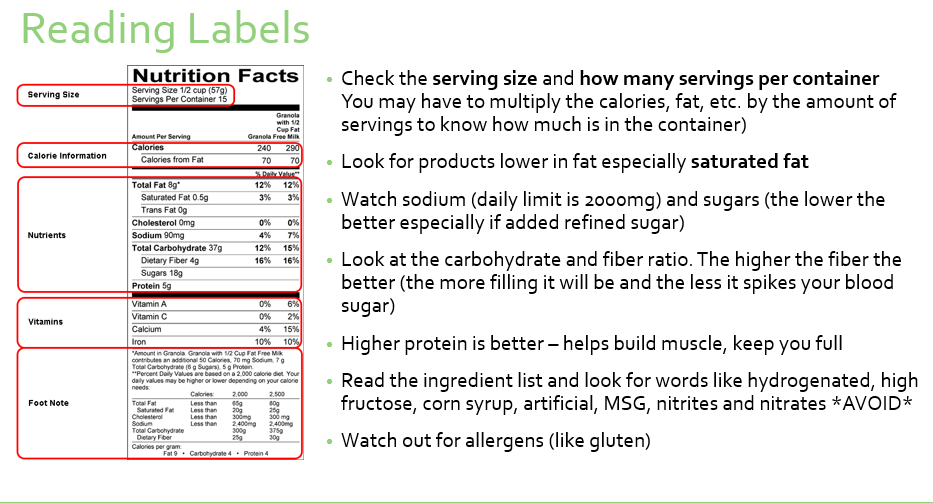
Most Common Food Culprits
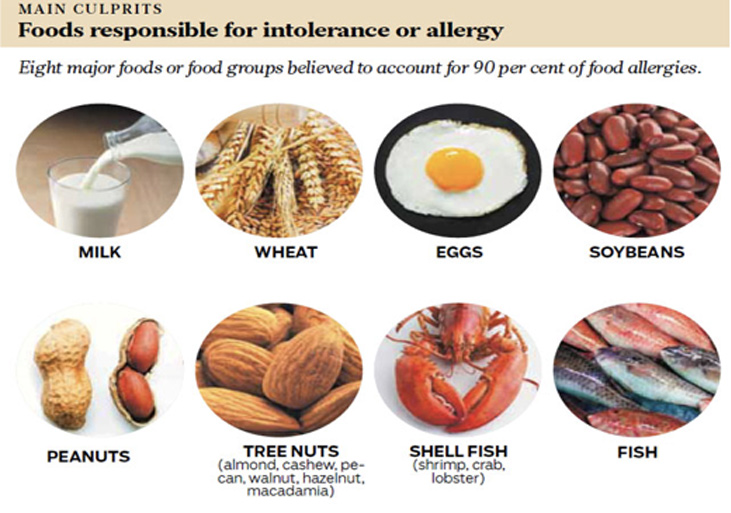
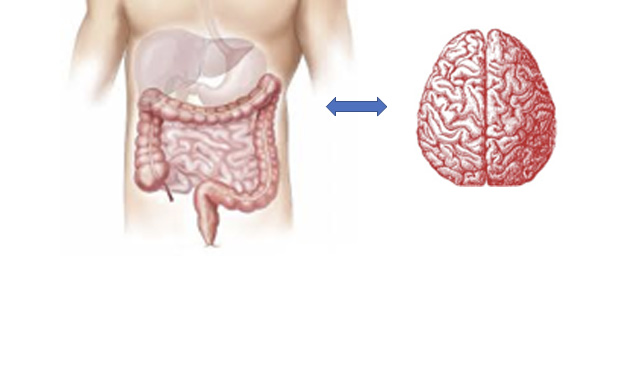
The Gut-Brain Connection
- In addition to providing us with nutrients, our gut and brain share a very strong relationship.
- Our gut is often referred to as our ‘second brain’.
- Studies have shown that gut disorders (intestinal and bowel) often correlate with poor mood, anxiety and depression.
Our gut and digestive tract contain more than:
- 70% of our immune cells
- 400x more serotonin (our ‘feel-good’ chemical) than our brain
- 500x more melatonin than our brain (necessary for proper sleep patterns)
Why Gut Health Affects Mood & Brain Health
- With poor gut health, we cannot absorb important nutrients for brain health.
- Without ‘brain nutrients’ like zinc, omega 3, and vitamin B, our brain does not have the tools for proper or optimal functioning.
- “Leaky Gut Syndrome.”
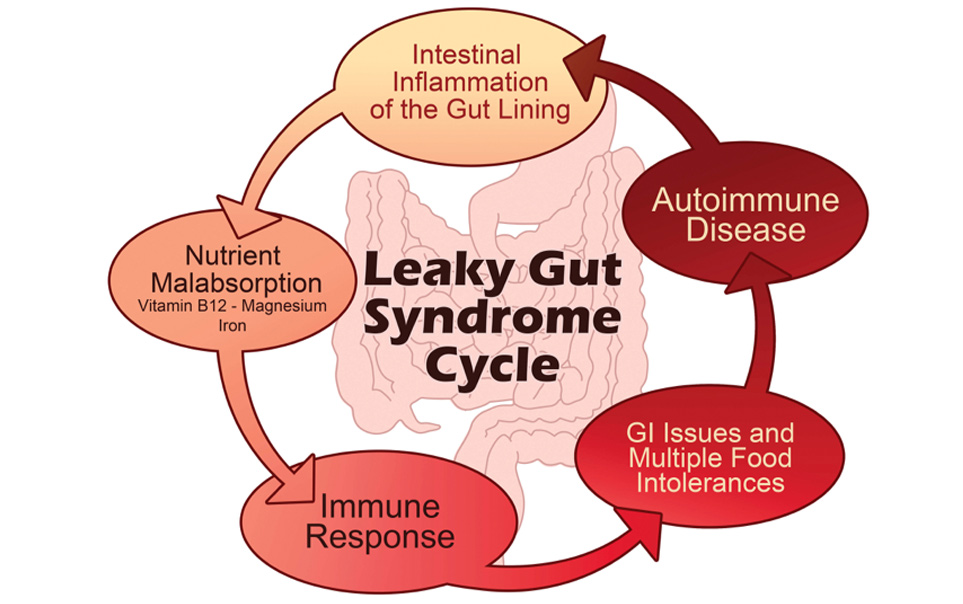
What is Leaky Gut?
- Your intestines work like a barrier to keep toxins and undigested food particles from ‘leaking’ out of your digestive tract.
- When some of these undigested proteins or wastes leak from inside your intestines into your bloodstream, it creates an inflammatory immune reaction.
- This leads to symptoms in many areas of the body - including the brain - where it can cause migraines, anxiety, or depression.
- In the brain, inflammation triggers anxiety and can decrease our “good mood” brain chemicals.
- This produces symptoms like fatigue, insomnia, PMS/hormonal imbalance, decreased desire for social activity, lowered libido, poor learning skills, and weight changes.
What Causes Leaky Gut?
- Stress & fast-paced lifestyles
- Increase in processed and packaged foods filled with gluten, dairy, soy, and corn (can inflame our gut & brain)
- High sugar consumption, alcohol, pesticides, environmental chemicals, antibiotics, and stress
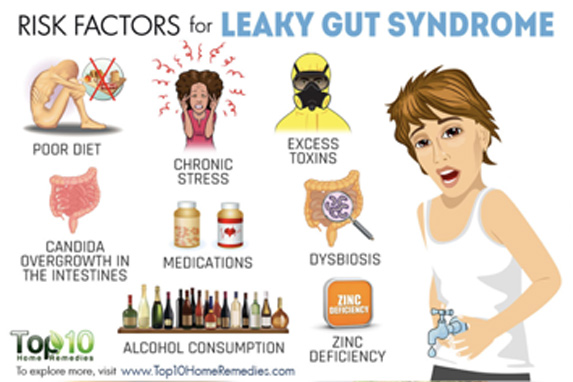
What are some signs of leaky gut?
- 1. Food Sensitivities – If we are unable to break down the proteins in foods like gluten (in wheat), casein (milk), and whey (dairy), they will wreak havoc on our gut. These undigested proteins can leak out into the bloodstream. As a defense response, our immune system starts to release antibodies and produce an inflammatory response.
- 2. Malabsorption – Symptoms of nutrient deficiencies result from leaky gut due to our inability to absorb vitamins and minerals.
- 3. Mood Issues – can trigger depression, irritability and migraines.
What you can do
1. Exercise: Exercise helps to control stress hormones, calms the nervous system, and builds muscle to support insulin sensitivity. It also releases endorphins and gets our bowels moving.
2. Diet: Food sensitivity testing or an elimination diet to identify food intolerances. Avoiding dairy and gluten is a good place to begin, followed by other major allergens such as soy, peanuts, corn, shellfish, eggs and citrus, and anti-inflammatory foods like wild fish, green vegetables, nuts and seeds.
3. Supplements: Natural supplements can also help lower inflammation and heal a leaky gut.
- Omega 3 Fish oil: For anti-inflammatory and mood-boosting effects.
- Probiotics: Can help to repair intestines, decrease feelings of anxiety and positively affect mood. Studies have shown that individuals taking probiotics have less anxiety.
- Curcumin (turmeric): Powerful natural anti-inflammatory that helps decrease inflammation and stress in the gut.
- L-Glutamine: Fuel to rebuild digestive tract cells and helps with the intestinal repair.
4. Meditation / Relaxation / Yoga: Help increase parasympathetic response, support circulation to the GI tract, and promote proper absorption of nutrients.

Don't see what you're looking for? Send us an email!
©Copyright 2024 Cam’s Kids powered by Kids Help Phone
Not-for-Profit Organization. B/N: 921508-5
Thanks for visiting Cam's Kids. Please remember...
Cam's Kids is not a service provider.
If you are in crisis, please call 911 or go to your nearest emergency department. For free, confidential counselling, contact Good2Talk or Kids Help Phone.
Post-secondary students: find your local crisis resource here.



